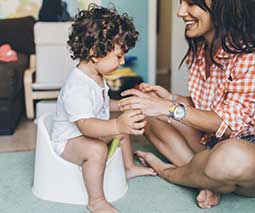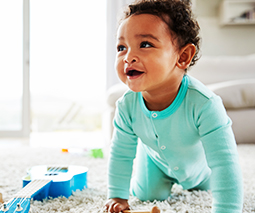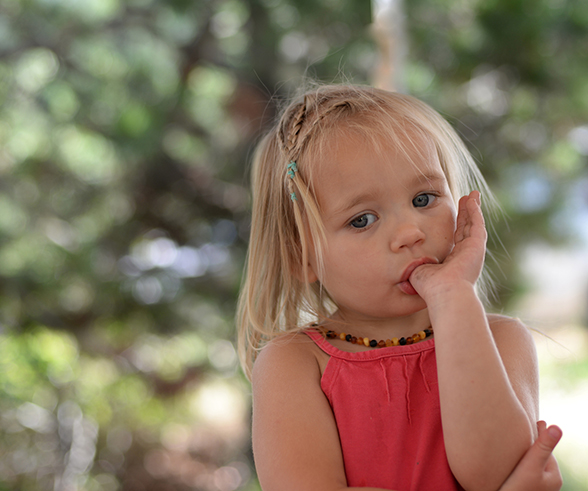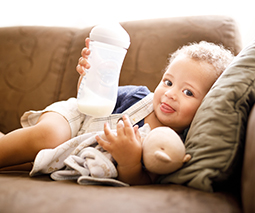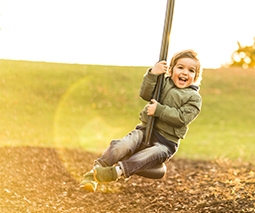Grabby and crabby: Why do toddlers always want what someone else has?

“My turn!” is the frequent refrain often heard spilling urgently from a toddler’s lips. Or maybe it isn’t. Maybe the toddler forgoes all vocalisation and simply rushes in to snatch that toy/spoon/book/swing/bike away.
Grabby toddler 101
While it might seem as though the grass is always greener where a toddler is concerned, it turns out they have excellent reasons for that ever-wandering, ever-wanting eye.
If this all sounds a lot like your own want-y toddler, fear not. There are a bunch of reasons toddlers come across as a little grabby.
1. They’re naturally curious
Little people have so much to learn, and very often they can’t wait a minute to begin. Your toddler might seem a bit volatile when they want that thing right now, but the urge to explore – touch, smell, taste – might be overwhelming them.
“Young children have natural curiosity. They are in love with life and thrilled by everything they see.” – Psychology Today
This sort of curiosity is definitely a strength. It just needs to be balanced with some compassionate lessons about sharing and/or respecting other people’s property.
2. They can’t self-regulate yet
Toddlers are beginning to work on regulating their own behaviour and feelings, but they have a long way to go before they start to master them. This means your toddler finds it hard to wait their turn, and they will need constant reminders to override those “I want it now” urges.
The struggle to control their impulses is very, very real, at this age.
“Children who typically feel things strongly and intensely find it harder to self-regulate. It isn’t as hard for children who are more easygoing.” – Raising Children Network

3. They don’t understand sharing yet
When a toddler grabs an object from someone else, she’s not aware that it might be upsetting. As she approaches her preschool years, she’ll learn more about empathy and considering others’ feelings.
In the meantime, parents can keep gently reinforcing that we ‘take turns’ – but know that it will be a difficult concept for some children to grasp.
“Turn sharing into a game. Set a timer; and when the buzzer goes off, the kids swap toys.” – Parents magazine.
4. They’re learning new skills
The main work of a toddler is to learn via play, and that means that almost everything that crosses their path provides an opportunity to work on their new physical, mental and verbal skills.
If they see someone with something interesting, they will want to “help” or even grab that thing and “do it myself”.
“Even if his body is quiet, his eyes and mind are busy. He is getting better and better at talking and listening. He is watching other people.” – Dealing with Toddlers, University of Illinois
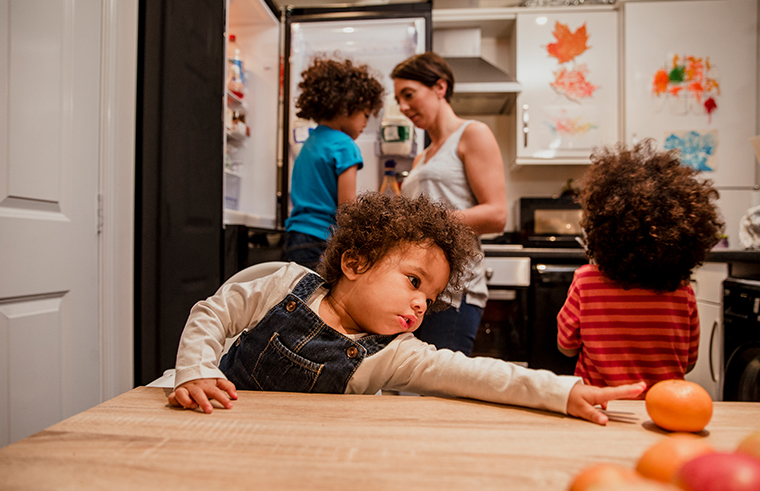
5. It feels powerful
Toddlers are learning big lessons as they go about their day, and one of them is that, even though the world is big and confusing, they can have some control over the interactions they have.
This means they are often testing out other their relationships with others, and sometimes that can mean grabbing something someone else has and seeing what happens next.
“Toddlers experiment to see whom they can dominate and who will dominate them.” – Scholastic
6. It creates order and security
Being possessive is one way for toddlers to make sense of the world, providing hands-on order when things might feel uncertain.
“Sometimes, the sights and sounds of daily life can be very confusing for a young toddler. They are not sure, for example, if a toy that is out of sight still exists. So, the child will hold onto objects, hoping that a very loud ‘Mine!’ will provide at least some sense of order.” – Scholastic
So you see, those grabby urges are based on some big feelings and developments in your toddler. Behaviour that might seem ‘naughty’ to the untrained eye is really a pathway to learning and nurturing vital social and personal skills.
